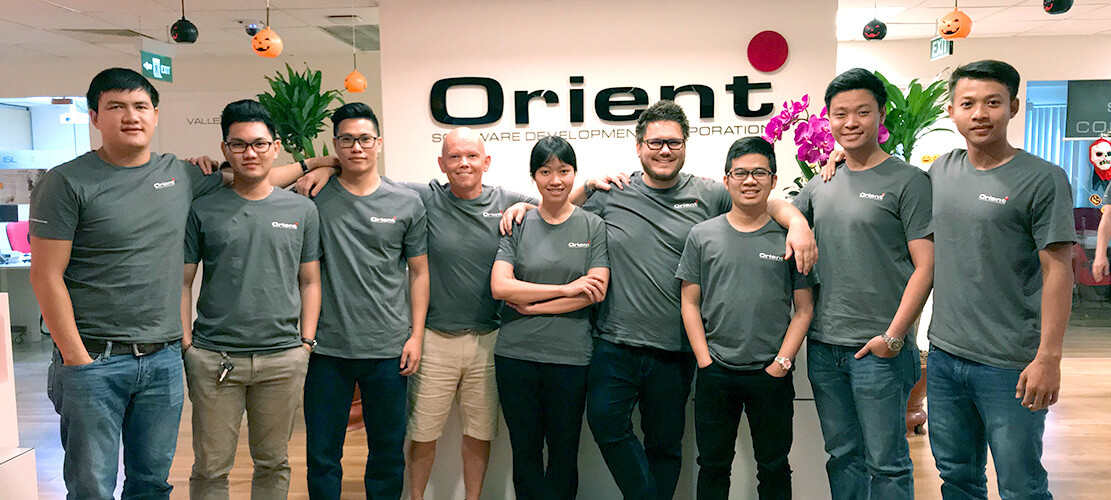
Vietnam's Favorable Conditions for Business

Content Map
More chaptersOutsourcing to a new country might be confusing, but there are plenty of reasons why Vietnam is such a good software outsourcing location. Let’s figure out why.
Sunny Conditions in Vietnam: Software Outsourcing’s Newest Hotspot
Let’s play a word association game:
Apple. Banana. Dog. Cat. Software outsourcing…Vietnam?
For those who check the news infrequently, it may come as a surprise to learn that the most appealing destination for software outsourcing is no longer India (especially considering the well-worn cultural trope of heavily Hindustani-accented call center reps). Nor is China the go-to market for software outsourcing, despite its massive population.
Instead, it is Vietnam that has emerged as the hottest location for global software outsourcing, a development that can be traced to several contributing factors. Working in conjunction with each other, these developments in the Vietnamese political, financial, and educational fields have made the country a hidden gem for savvy IT companies.
Let’s take a closer look at the reasons Vietnam has been popping up on “Best Of” lists from everybody from Tholons to Gartner.
Taxes
They’re inevitable, like death and more Transformers movies. Smart companies looking for software outsourcing partners look for places that offer incentives that can help minimize the burden of onerous taxes. In recent years, Vietnam has become just such a place.

According to a survey by the United Nations Industrial Development Organization and the Ministry of Planning, 79% of foreign firms in the capital city of Hanoi received fiscal incentives such as tax breaks and land rent reductions. The local English-language paper Thanh Nien reported that Olin McGill, a senior economist for United States Agency for International Development, also postulated that tax breaks have contributed to a lucrative business environment for foreign firms in Vietnam.
Low tax rates aren’t the only thing drawing IT companies to Vietnam, however. There’s also the matter of:
IT Infrastructure
As a case study, consider the beach city of Danang (made famous by the explosive surfing scenes from the film Apocalypse Now).
Since 2010, the city has spent over US$4.5 billion to create a welcoming environment for IT companies. Bloomberg reports that 300 kilometers (186 miles) of fiber optic cable crisscrosses the city, all installed by Cisco Systems. Real-time updates on bus routes and water quality are monitored by a system from IBM.
A high-tech park, creatively named the Danang High Tech Park (OK, it probably could’ve use a little more focus-grouping), is currently under construction. Once it is completed, the park is expected to provide housing for over 10,000 tech workers across a sprawling 1,130 hectares. With schools, shopping malls, and international schools, the High Tech Park is a huge, tangible endorsement of Vietnam as a new hotspot for global IT outsourcing.

But, as guidebooks are fond of reminding us, it’s the people who really make a place special. And in Vietnam’s case, the people are increasingly young, educated, and tech-literate.
Olympic-Sized Labor Pool
Vietnam’s population has long been an appealing draw for foreign manufacturing companies. Fast approaching 100 million people, Vietnam is a fertile place to recruit workers. Local salaries, which are lower than those in places with more expensive costs of living (such as Singapore, Europe, or the United States), only make Vietnam more attractive as a potential labor pool.
Until recently, the main question facing foreign IT companies looking to outsource more complicated tasks was: where can we find the smart, educated workers we need? Thanks to a massive influx of foreign investment and educational support, Vietnam is now producing a steady stream of IT-adept graduates ready to take on more advanced software outsourcing tasks.
As an example, consider the Higher Engineering Education Alliance Project (HEEAP) sponsored by the Arizona State University Schools of Engineering (USA). By utilizing the latest in applied, hands-on instructional approaches, HEEAP has helped modernize Vietnamese educational systems and helped bring the science and engineering educational standards up to an international level. More than 2,000 Vietnamese instructors have already passed through the project’s intensive training process, with demand for entrance continuing to rise.

The Vietnamese-German University (VGU), which was founded in 2008, is another example of the rapid development of Vietnam’s IT labor pool. Thanks to its partnership with the German Ministry of Higher Education, VGU has established itself as a research-oriented bastion with rigorous, international-level standards.
As more young Vietnamese receive higher-level educations from institutions with such pedigrees, the country’s attractiveness as an IT outsourcing destination is likely to explode.
Stable and Secure
Vietnam may be a fresh face to the software outsourcing market, but it lacks the instability of many newcomers. Its stable government and predictable business climate mean that foreign companies can outsource their IT operations with clear minds. The country is hungry to attract foreign businesses that can provide the capital and expertise Vietnam needs to move forward, creating a symbiotic partnership with foreign IT companies that can benefit both sides equally.

The conditions have never been better for software outsourcing in Vietnam – it’s time to pull up a chair, soak up the sun, and enjoy.






